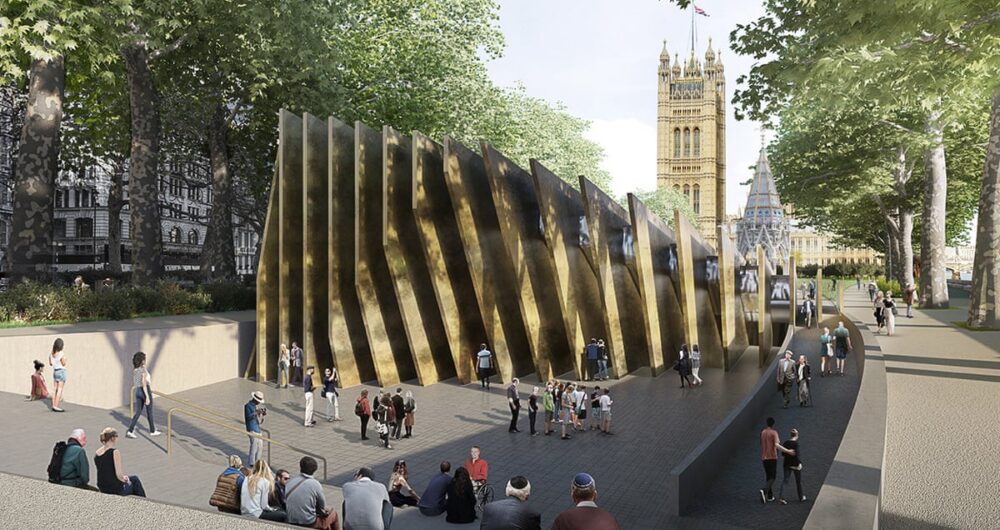The government has given the go-ahead for a Holocaust memorial to be built next to the Houses of Parliament, BBC reports.
The plan, including 23 large bronze sculptures and an underground learning center, was previously rejected by Westminster Council.
Former Prime Minister David Cameron announced plans for the project in 2016, but it has been beset by disagreements over its meaning, as well as public safety and possible harm to parkland.
The decision has been overturned following an inquiry.
The Board of Deputies of British Jews said it was “delighted”, but concerns have been raised that the site could become a target for terrorists.
However, the government said it was confident the memorial, to be built on Victoria Tower Gardens with work starting later this year, would be secure.
Among those attending an event in Victoria Tower Gardens to commemorate the decision to give the go-ahead to the Holocaust memorial was Lily Ebert.
In July 1944, Hungarian-born Lily was deported, aged 14, to the Auschwitz-Birkenau extermination camp in Poland, where her mother, younger brother, and younger sister were sent to the gas chambers.
“It is a big achievement for us that we are here and we can show the world what happened, that we survived,” she said.
“It’s a beautiful occasion, with people here. We feel that we can build something that is not only for us but for our children and grandchildren, so we will not forget what happened.”
Communities Secretary Robert Jenrick said the memorial and learning center would “educate and inform future generations about the horrors of the Holocaust”.
He added that it would also foster a better understanding of “the British role in the tragedy – the things we did right and we did wrong”.
Labour leader Sir Keir Starmer backed the project, arguing it was “vital” in educating future generations about the Holocaust.
Marie van der Zyl, president of the Board of Deputies of British Jews, said: “There will be something uniquely powerful about locating a memorial to the Holocaust right next to the center of the UK’s democracy.
“Whilst the Holocaust was a particular crime against Jewish people, the Nazis also viciously persecuted Roma, gay and disabled people, and this memorial will speak to that.”
She added: “The messages and learnings that one should glean from its memorialization are a powerful reminder of the universal values of fairness and justice that a democratic society has the responsibility to bestow upon its citizens.”
Image credit: The Guardian




